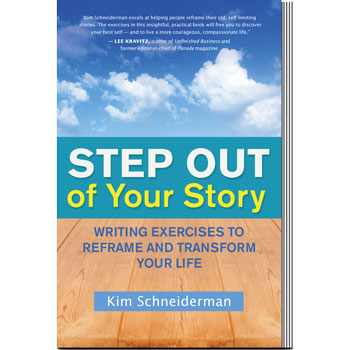Every human relationship, whether familial, romantic, or platonic, is more or less an ambitious, hopeful, but potentially hazardous psycho-chemistry experiment. When you combine two unique sets of genetics, backgrounds, and life experiences, you never know whether you’ll get sparks, combustion, or something in between.
Most of us aspire to the sparks and “in between,” anticipating the occasional misunderstanding or disagreement. But as much as we may try to steer clear of the combustive ones, they usually have a not-so-funny way of finding us.
And maybe that’s not such a bad thing. Obviously, physical, sexual, and emotional abuse should never be tolerated. But a little conflict can be potentially beneficial, depending on how we see and respond to it.
One of my favorite models for reframing conflicts comes from literature. When we read a story or watch a film, not only do we expect conflicts, but also we recognize that tension is an important part of the protagonist’s psychological evolution.
In life as in literature, every protagonist has a character arc, a particular way he or she evolves in response to the friction in the plotline. At the outset of every narrative, the protagonist possesses certain viewpoints and capabilities that have gotten the character by until now.
Inevitably, situations arise, usually presented by an adversarial character known as the antagonist, that challenge the protagonist’s perspective or demand skills he or she doesn’t yet possess. The degree to which the protagonist embraces this challenge, or tries to avoid it, determines who he or she becomes, for better or for worse.
Similarly, every person is the ever-evolving protagonist of their own unfolding drama, with choices to make about how to respond to adversity. If you can accept that conflict is an inevitable part of any story, rather than blaming yourself, feeling like a victim, or pretending it doesn’t exist, you’re on a path towards an empowering resolution.
This doesn’t necessarily mean engaging your adversary in verbal battle, but rather doing the important inner work that can and often leads to personal success and redemption.
Your Emotional Muscle Workout
For example, suppose you have a sibling that treats you like a doormat. Perhaps you avoid confronting them about your mistreatment because you fearthey’ll explode or get mean. Taking the self-respecting path of standing up for yourself—simply stating, “Please don’t speak to me that way,” or, “I’m going to walk away if you don’t stop yelling”—would leave you feeling stronger and more confident.
Such a courageous stance might be hard to take if you’re feeling insecure. Often, our antagonists have the power to hurt and trigger us precisely because they poke at our vulnerabilities and insecurities. But understanding, healing, and changing our reactions to these wounds, often through psychotherapy, is an important part of our psychological and spiritual development.

Leave a Reply